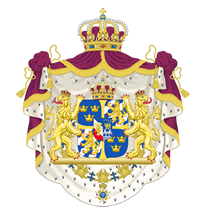Sweden: Government
Key Figures
- Chief of State:
- King Carl XVI Gustaf
- Head of Government:
- Prime Minister Ulf Kristersson
Overview
- Government Name:
- Kingdom of Sweden
- Constitution:
- Adopted:1989; Consists of four fundamental laws: The Act of Succession (1810), The Freedom of the Press Act (1949), The Instrument of Government (1974), and The Fundamental Law on Freedom of Expression (1991). Additionally a law on the internal structure and functions of the Riksdag has a special status, but is not regarded as a fundamental law (The 1974 Riksdag Act).
- Government Type:
- Parliamentary Constitutional Monarchy

Index of Economic Freedom
Country Risk Rating
Government Branches
| Main Powers | Election Process | Election Cycle 1 | |
|---|---|---|---|
| Executive | Monarch holds a ceremonial title as head of state. The prime minister serves as the head of government while the government of Sweden is the national cabinet and the supreme executive authority. Each ministry acts in its specified titled area. |
Prime minister elected by parliament. |
4 years |
| Judicial | All courts are independent of the Riksdag and government intervention with the courts decisions is not allowed. |
Nominated by Board of Judges, appointed by executive branch. |
Life appointment |
| Legislative | The unicameral Riksdag is the supreme decision-making body in Sweden. It is responsible for enacting laws, amending the constitution, and appointing a government. |
310 members are elected through a flexible-list proportional representation system and 39 are distributed by proportional representation. |
4 years |
Regional Trade Blocs
International Organization Participation [2]
Environmental Agreements [3]
Tax Information [2]
- Tax Authority:
- Ministry of Finance
- Tax Name:
- VAT
Sources:
- ElectionGuide http://www.electionguide.org/
- EY, http://www.ey.com
- CIA World Factbook, https://www.cia.gov/the-world-factbook/
- U.S. Bilateral Relations Fact Sheets http://www.state.gov/r/pa/ei/bgn/


